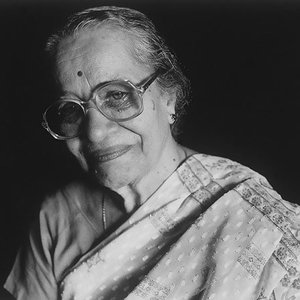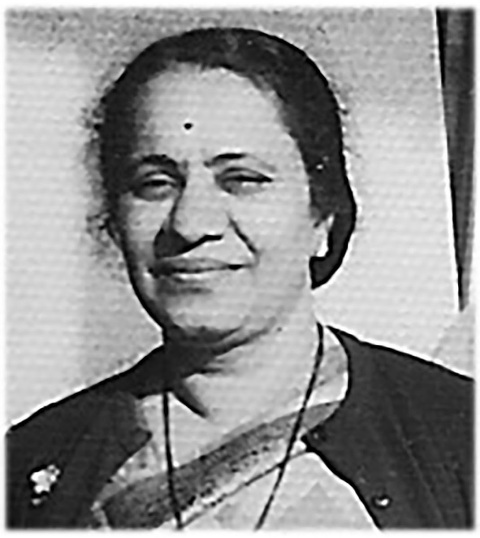- Dr. Kamal Ranadive was a pioneering Indian biomedical researcher known for her work in cancer and leprosy research.
- She established India’s first tissue culture laboratory at the Indian Cancer Research Centre.
- Ranadive co-founded the Indian Women Scientists’ Association to support women in science.
- Her community work focused on training women healthcare workers in rural Maharashtra.
- She received numerous awards, including the Padma Bhushan, for her contributions to science.
Dr. Kamal Ranadive was born on November 8, 1917, in Pune, India. Her father, a biology professor at Fergusson College, had a profound impact on her upbringing, instilling the value of education in all his children.
This supportive atmosphere nurtured her early interest in science. Kamal performed exceptionally well academically, completing her Bachelor of Science degree in 1934 and later obtaining a Master’s degree in cytogenetics from the Agriculture College in Pune.

In defiance of societal norms, Kamal opted for a career in biomedical research instead of following the conventional path of medicine. She advanced her studies at the University of Bombay, where she achieved a Ph.D. in cytology in 1949. Motivated by her mentor, she pursued additional training in the United States, collaborating with esteemed cell biologist George Gey at Johns Hopkins University. This experience set the stage for her pioneering work in tissue culture and cancer research.
| Biography Details | Information |
| Name | Kamal Jayasing Ranadive |
| Birth Date | November 8, 1917 |
| Death Date | April 11, 2001 |
| Education | B.Sc. from Fergusson College, M.Sc. in Cytogenetics, Ph.D. from Bombay University |
| Major Contributions | Cancer research, leprosy vaccine development, tissue culture |
| Awards | Padma Bhushan, Watumull Foundation Prize |
| Organizations Founded | Indian Women Scientists’ Association |
Also Read: Selena Gomez Surprises High Schoolers at Volleyball Game Event
Dr. Kamal Ranadive Professional Career and Contributions
After returning to India, Dr. Kamal Ranadive founded the first tissue culture laboratory at the Indian Cancer Research Centre (ICRC) in Mumbai. Her groundbreaking research concentrated on the genetic factors of various cancers, with a particular focus on breast cancer. She was among the first to suggest a hereditary connection to breast cancer, a significant breakthrough in the field of oncology.
Dr. Ranadive’s research was not limited to cancer; she also played a key role in developing a vaccine for leprosy. Her innovative cancer research methodologies led to the creation of animal models that advanced the understanding of leukemia and other cancers. Her dedication to scientific excellence and mentorship inspired numerous young scientists, fostering a culture of innovation and inquiry within the Indian scientific community.
Kamal Ranadive’s Advocacy and Mentorship
Beyond her scientific achievements, Dr. Kamal Ranadive was a fervent advocate for women in science. In 1973, she co-founded the Indian Women Scientists’ Association (IWSA), an organization designed to support women in scientific careers. This initiative has since expanded to include several chapters across India, offering scholarships and childcare support to help women pursue careers in science.
Throughout her career, Dr. Ranadive stressed the importance of mentorship, encouraging students and young researchers to return to India after their international studies, believing in the capability of local talent to drive national progress. Her efforts have made a lasting impact on Indian science, especially for women.
Philanthropic Efforts and Community Work
After retiring in 1989, Dr. Ranadive committed her time to enhancing community health in rural Maharashtra. She focused on training women to become healthcare workers and prioritized nutrition and healthcare education. Her initiatives aimed to empower local communities and improve health outcomes for women and children.

Her philanthropic efforts extended beyond healthcare; she was actively involved in various charitable endeavors, supporting education and humanitarian initiatives. Her dedication to social responsibility and community service reflected her belief that science should benefit society as a whole.
Legacy and Recognition
Dr. Kamal Ranadive passed away on April 11, 2001, yet her legacy continues to inspire future generations. She authored over 200 scientific papers, making significant contributions to oncology and microbiology. Her work has had a lasting impact on cancer research and treatment practices.
In recognition of her achievements, Dr. Ranadive received many honors, including the Padma Bhushan, India’s third-highest civilian award, in 1982. Her life and contributions were celebrated with a Google Doodle on her 104th birthday, highlighting her role as a pioneer in biomedical research and an advocate for women’s empowerment in science.
FAQs
Q. What were Dr. Kamal Ranadive’s major contributions to science?
Dr. Ranadive was a trailblazer in cancer research, most notably recognized for establishing India’s first tissue culture laboratory and identifying genetic connections to breast cancer.
Q. What is the Indian Women Scientists’ Association (IWSA)?
Co-founded by Dr. Ranadive and others, the IWSA is an organization dedicated to supporting women in scientific fields through scholarships, mentorship, and community programs.
Q. How did Dr. Ranadive impact healthcare in rural communities?
Following her retirement, she trained women to serve as healthcare workers and promoted education on nutrition and health, greatly enhancing local health outcomes.
Q. What awards did Dr. Kamal Ranadive receive?
She received the Padma Bhushan in 1982, along with several other accolades for her contributions to medical research.
Q. When did Dr. Kamal Ranadive pass away?
Dr. Ranadive passed away on April 11, 2001.
Also Read: Selena Gomez Surprises High Schoolers at Volleyball Game Event
Last Updated on September 5, 2024 by 247 News Around The World







